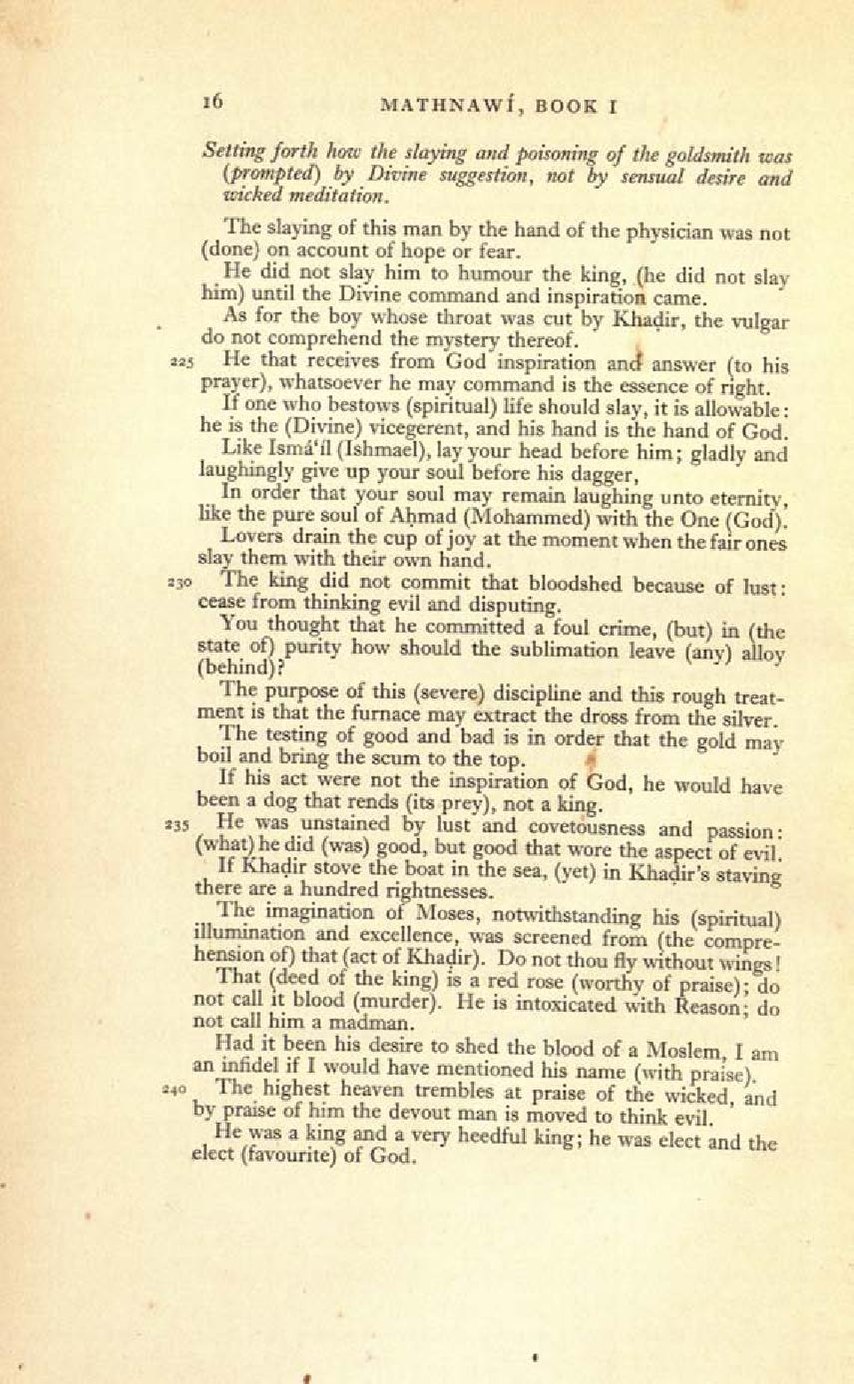Setting forth how the slaying and poisoning of the goldsmith was (prompted) by Divine suggestion, not by sensual desire and wicked meditation.
The slaying of this man by the hand of the physician was not (done) on account of hope or fear.
He did not slay him to humour the king, (he did not slay him) until the Divine command and inspiration came.
As for the boy whose throat was cut by Khadir, the vulgar do not comprehend the mystery thereof.
He that receives from God inspiration and answer (to his prayer), whatsoever he may command is the essence of right.
If one who bestows (spiritual) life should slay, it is allowable: he is the (Divine) vicegerent, and his hand is the hand of God.
Like Ismá'íl (Ishmael), lay your head before him; gladly and laughingly give up your soul before his dagger,
In order that your soul may remain laughing unto eternity, like the pure soul of Aḥmad (Mohammed) with the One (God).
Lovers drain the cup of joy at the moment when the fair ones slay them with their own hand.
The king did not commit that bloodshed because of lust: cease from thinking evil and disputing.
You thought that he committed a foul crime, (but) in (the state of) purity how should the sublimation leave (any) alloy (behind)?
The purpose of this (severe) discipline and this rough treat- ment is that the furnace may extract the dross from the silver.
The testing of good and bad is in order that the gold may boil and bring the scum to the top.
If his act were not the inspiration of God, he would have been a dog that rends (its prey), not a king.
He was unstained by lust and covetousness and passion: (what) he did (was) good, but good that wore the aspect of evil.
If Khadir stove the boat in the sea, (yet) in Khadir's staving there are a hundred rightnesses.
The imagination of Moses, notwithstanding his (spiritual) illumination and excellence, was screened from (the compre- hension of) that (act of Khadir). Do not thou fly without wings!
That (deed of the king) is a red rose (worthy of praise); do not call it blood (murder). He is intoxicated with Reason; do not call him a madman.
Had it been his desire to shed the blood of a Moslem, I am an infidel if I would have mentioned his name (with praise).
The highest heaven trembles at praise of the wicked, and by praise of him the devout man is moved to think evil.
He was a king and a very heedful king; he was elect and the elect (favourite) of God.
